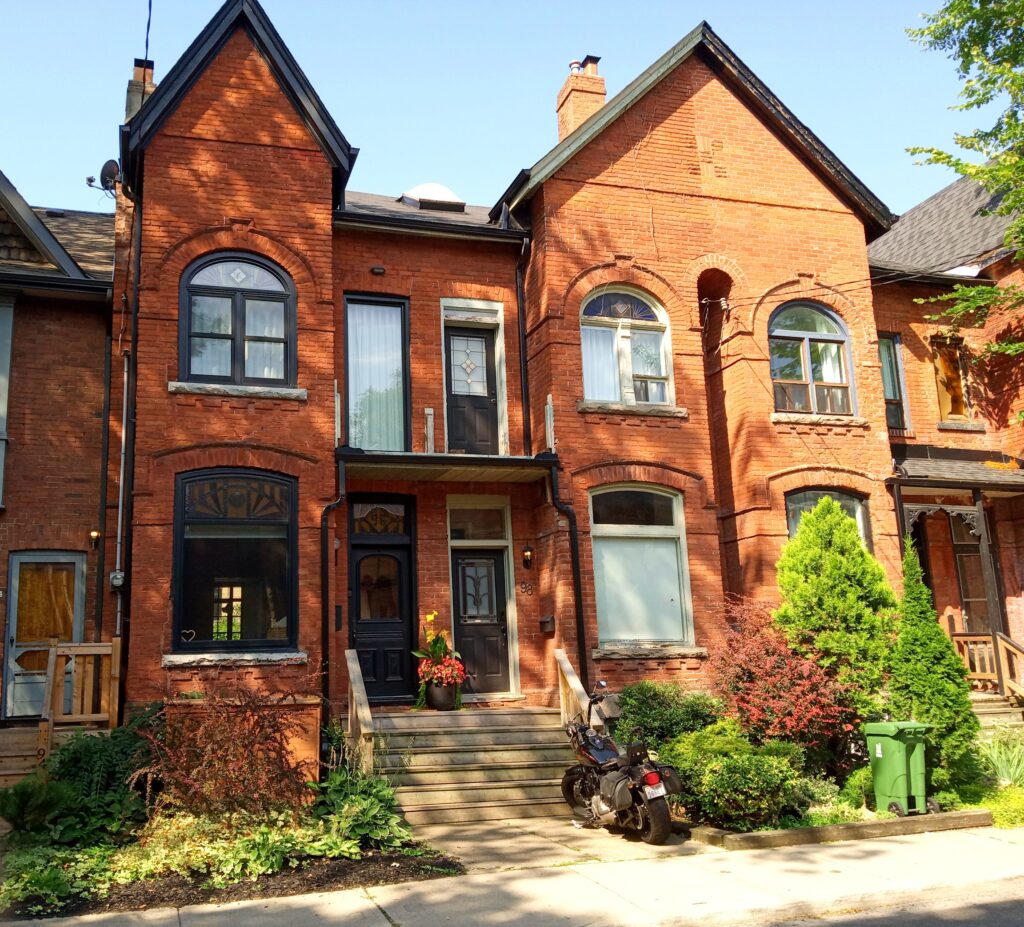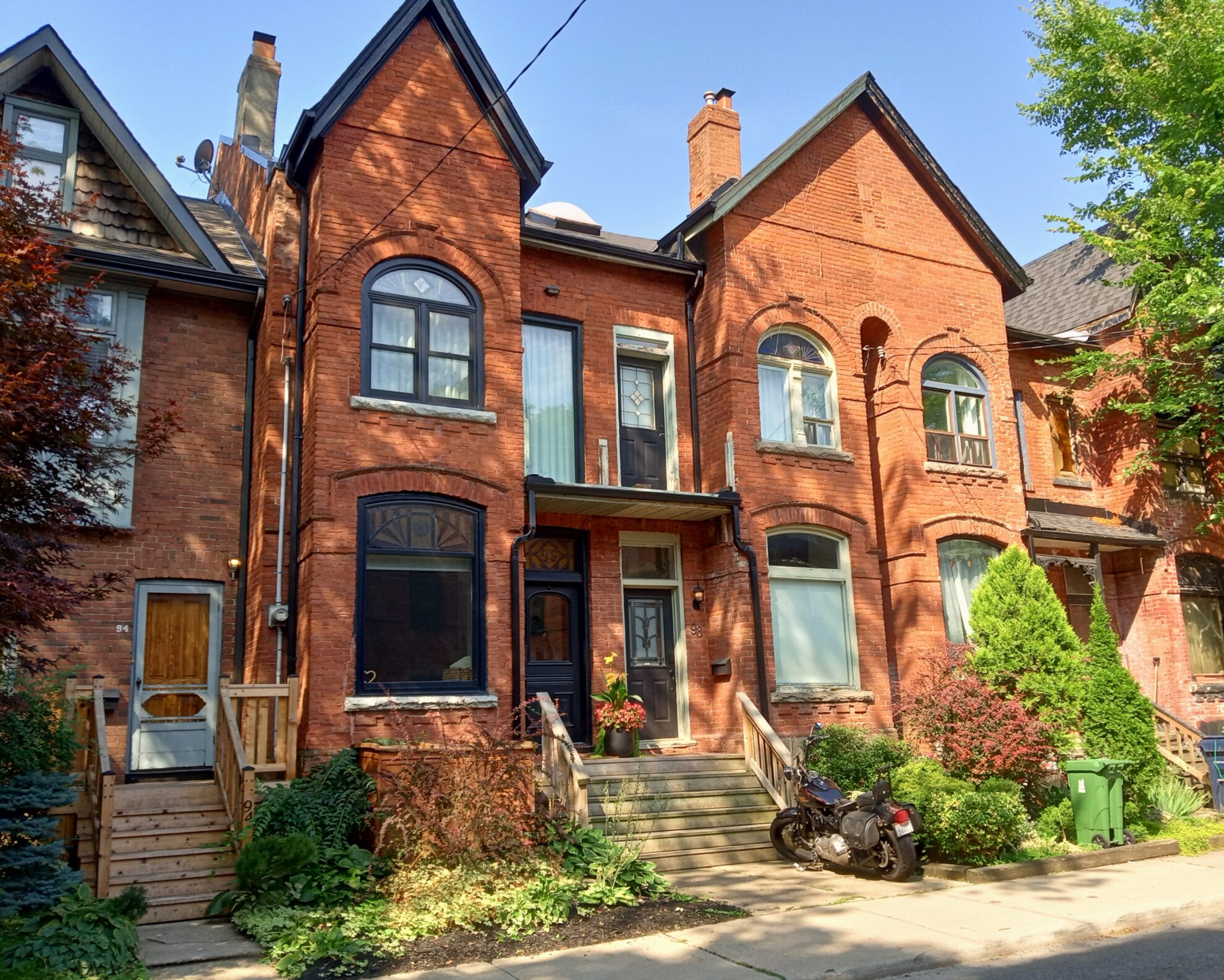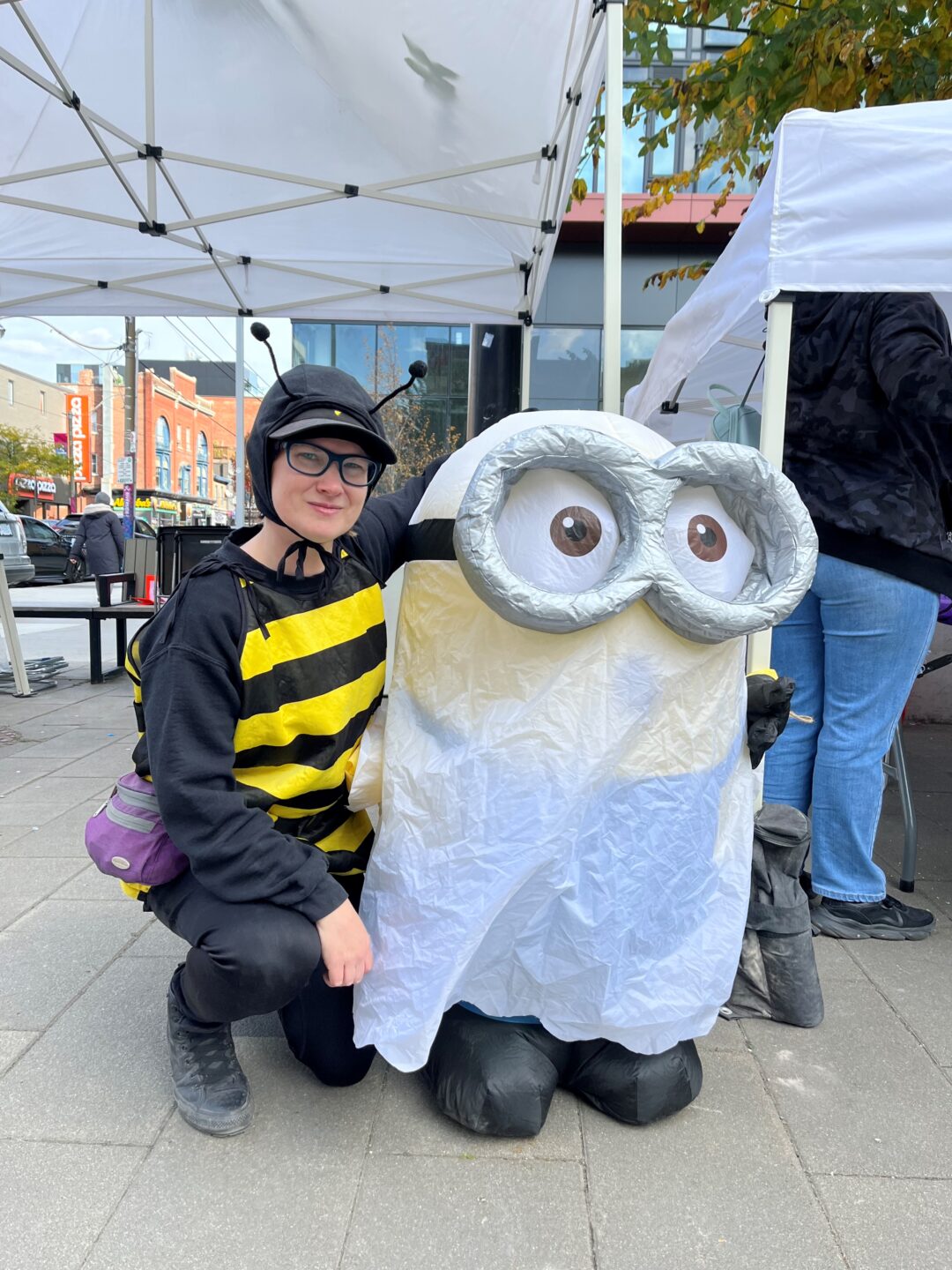Winnie Czulinski –
The Bonjour Brioche café and the railway bridge/track construction at the south end of this leafy side street somehow both bring to mind the world-famous TV series shot in Toronto. Degrassi Street (a version of the real De Grassi Street name) was urban and appealing while covering gritty issues in a riveting way. And it keeps running.
It’s 45 years since Linda Schuyler – then an east-end Toronto teacher/fledgling filmmaker at Earl Grey Senior Public School – had a vision to create what became the first episode of her young-people’s TV series. It became Canada’s longest-running drama series, winning multiple awards and attracting new generations of fans.
In 2024, a new documentary series of the show is being produced, by Toronto’s WildBrain Ltd., in partnership with production company Peacock Alley. (In 2014, Schuyler and her husband, entertainment lawyer/ producer Stephen Stohn, sold Epitome Pictures to DHX Media, which became WildBrain.)
Though the Degrassi series used many locations and studios, in the early days much of it was filmed in South Riverdale/ Leslieville, especially in and around the street named for 19th-century Italian soldier of fortune Filippo De Grassi. The neighbourhood had a mix of immigrants, low-income housing, a gay community, and “white painters” (gentrifiers) coming in.
Before she and then-partner Christopher (Kit) Hood became producers, Linda Schuyler appreciated the rich ethnic mix of her classroom community. “Long before words like EDI (equity, diversity and inclusion) we were celebrating diversity – that’s why that neighbourhood was so important to us.”
This led to her making Between Two Worlds, a documentary about her school kids straddling home and away cultures. American television network NBC ran it. Then in 1979 Schuyler adapted the children’s book Ida Makes a Movie, shooting in friend/teacher colleague Bruce Mackey’s De Grassi Street Victorian home.

South Riverdale Victorian home of the late Bruce Mackey. Photo: Winnie Czulinski
Further episodes like “Cookie Goes to the Hospital” and “Irene Moves In” explored the lives of several young people. Producer Schuyler wanted kids of different body types/ethnicities, “with glasses, bad hair and clumsy feet. And most importantly, they needed to possess vulnerability.” The Kids of Degrassi Street was born.
“I started out making documentaries, but I was acutely aware that there was nothing on television for the adolescent and teenage market,” she says. “It was all pre-school or adult programming.”
The Degrassi series and franchise dealt with issues such as racism, teen pregnancy, abortion, gender identity/LGBTQ+, school violence, hate crimes, suicide, mental illness, addiction and more day-to-day issues. Schuyler’s goal was to tell stories without “sensationalizing or trivializing.”
TRIVIA:
• One character became the first to say the “f” word on Canadian TV in 1992.
• The series had the first transgender character as a series regular in a scripted TV show (introduced in season 10 of Degrassi: The Next Generation).
• Degrassi Street kid actor Aubrey ‘Drake’ Graham went on to become major rap star Drake.
• Degrassi had guest stars including Alanis Morrisette, Chaz Bono, and Billy Ray Cyrus – who asked for a role on the show his daughter Miley Cyrus loved. (He played a ‘skanky’ limo driver.)
• The show had kid/teen performers coming back to play adult roles in next-generation runs.
East Toronto locations often visited on tours include:
•Pape Avenue
•Dundas Street Public School
• site of the former De Grassi Street convenience store
• the Queen Street East/Saulter branch of Toronto Public Library
• the Victorian mansion on De Grassi Street owned by Schuyler’s late colleague/friend Bruce Mackey
• De Grassi Street Park and Bruce Mackey Park
• St. Michael’s Hospital, 30 Bond Street
• Matty Eckler Community Recreation Centre, 953 Gerrard Street East
Even in an age of Netflix and YouTube, Degrassi DVDs are still popular, at Toronto libraries. Linda Schuyler’s memoir The Mother of All Degrassi was published in 2022 by ECW Press, itself located in Riverdale.
Schuyler, named to the Order of Canada and Order of Ontario, says “I’m so proud of the fact that the show travelled as well as it did. It was produced with the idea of reflecting the reality of those kids in that neighbourhood.”
The commonality of teenage years anywhere gave the stories universal appeal, she says. The series sold well internationally, and “the by-product of that was we got to showcase Toronto, and particularly the east end, to the rest of the world.”
When friends of Schuyler’s parents travelling in China years ago were introduced to their interpreter as “Canadian,” he smiled, respectfully bowed his head and said, “Ah – Bethune … and Degrassi.”




